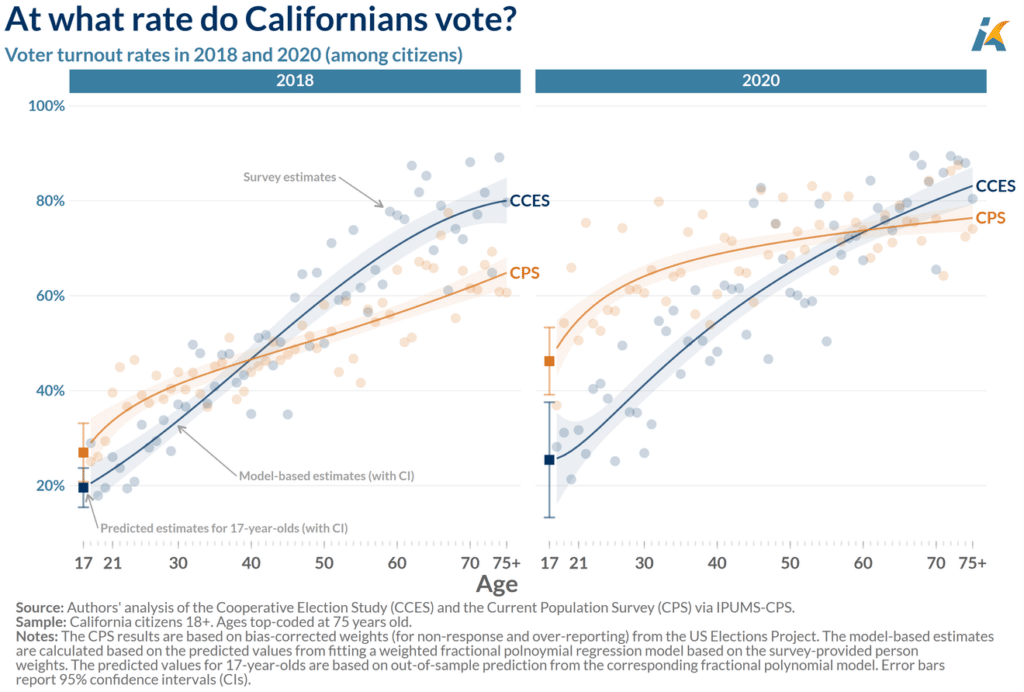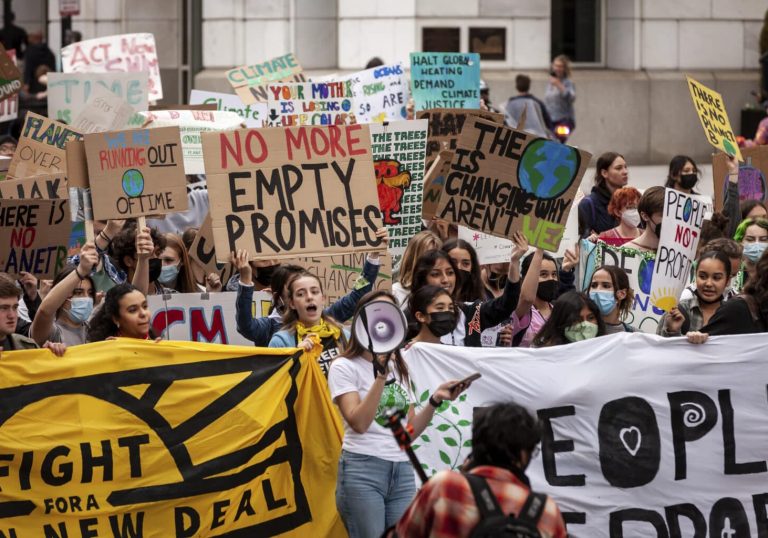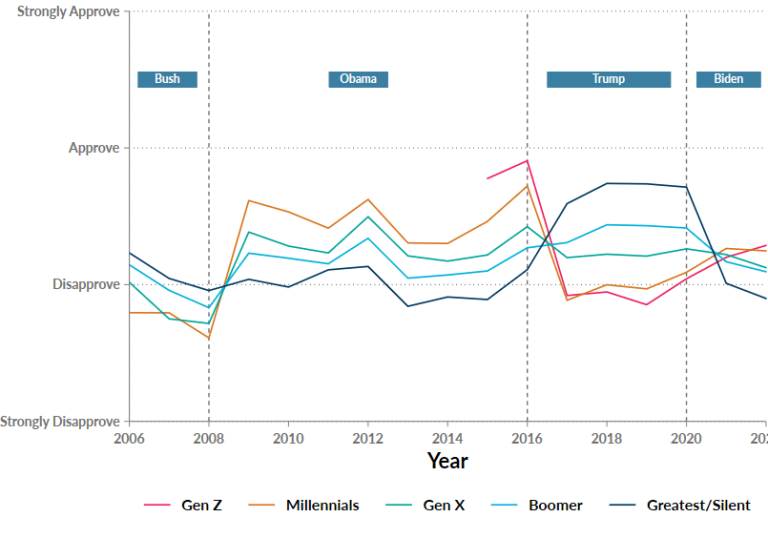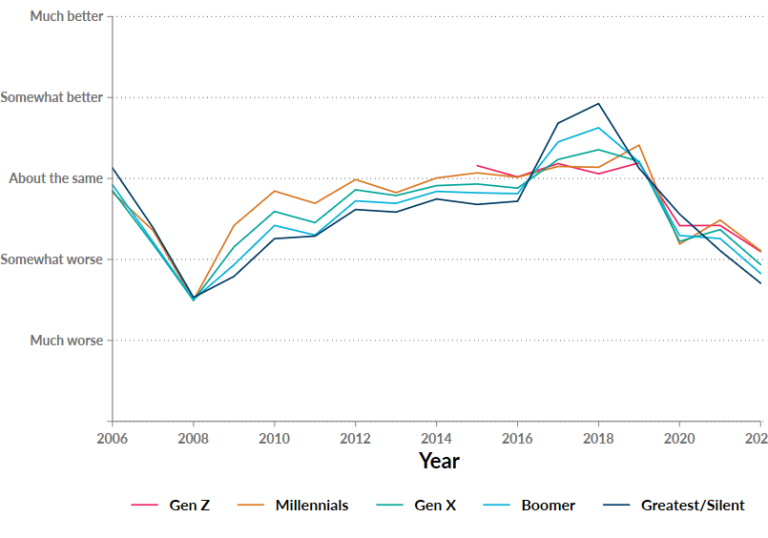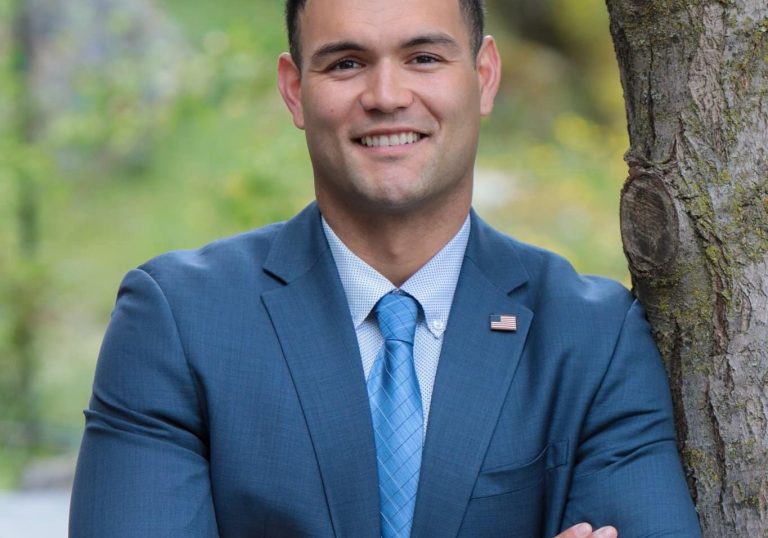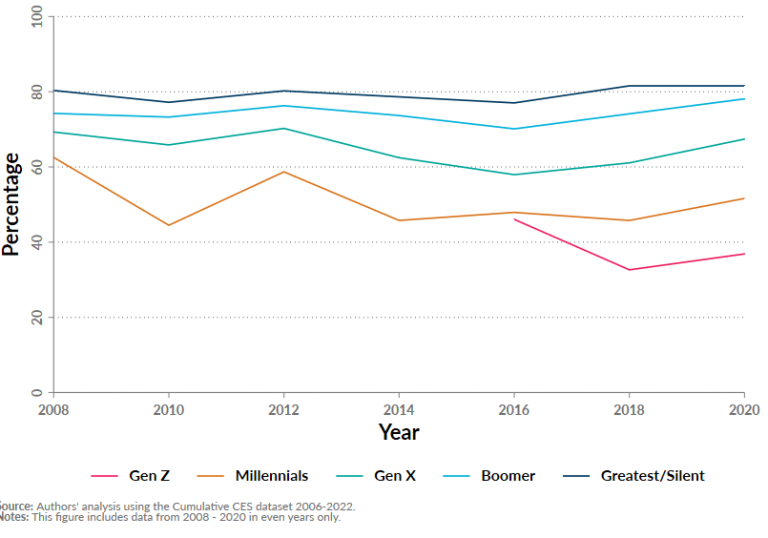Read the full policy brief, which reviews the research evidence for lowering the voting age, California’s historical context, and predicted turnout rates for 17-year-olds.
Using data from the Cooperative Election Study (CCES) and the Current Population Survey (CPS), we estimate how many 17-year-olds would have voted in 2018 and 2020 if they were eligible to vote.
We find that:
- 2018 Midterms – If the voting age were lowered to 17, our point estimates show that between 20-27 percent of all 17-year-olds in California would have participated in the 2018 midterm election;
- 2020 General Election – Between 26-46 percent of all 17-year-olds would have participated in the 2020 general election (with additional uncertainty within the estimated 95% confidence intervals).
Our predictions show that 17-year-olds would have the lowest turnout rate of any age group, but our estimates do not account for exogenous factors such as the popularity of an election, whether high-quality civics education is offered to 17-year-olds, the novelty of the voting age change and its effect on turnout, or other factors.
